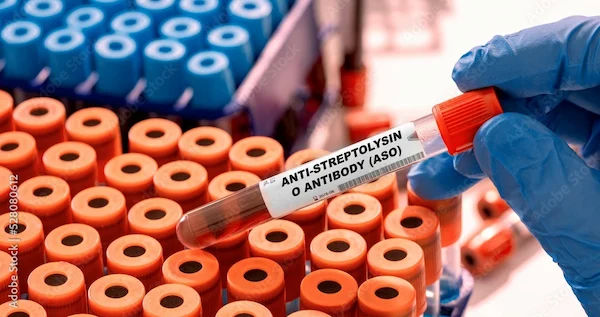How to Reduce WBC Count Naturally?
Learn how to reduce WBC count naturally with lifestyle changes, diet modifications, and herbal remedies. Discover effective ways to support immune balance.

Written by Dr.Sonia Bhatt
Last updated on 3rd Jul, 2025

Introduction
Our bodies are constantly at work, defending us from harmful invaders like viruses and bacteria. One of the most crucial components in this defence system is our white blood cells (WBCs). WBCs play a key role in immune function, fighting infections and promoting overall health. However, when their numbers rise too high, it can indicate underlying health problems. If you're looking to reduce your WBC count naturally, you’ll be pleased to know that several lifestyle changes, dietary adjustments, and natural remedies can help.
Understanding White Blood Cells (WBC)
White blood cells are a crucial part of your immune system. They help protect your body against infections and diseases by identifying and attacking harmful invaders like bacteria, viruses, and other pathogens. WBCs are produced in the bone marrow, and they can be classified into several different types, each serving a specific function. These include neutrophils, lymphocytes, monocytes, eosinophils, and basophils. Normal white blood cell (WBC) count is generally between 4,000 and 11,000 cells per microliter of blood.
When your body faces infection or inflammation, the WBC count naturally rises as part of the immune response. However, an abnormally high WBC count, known as leukocytosis, can be problematic, indicating an infection, inflammation, or even an underlying medical condition.
Reasons for Elevated WBC Count
Several factors can trigger an elevated WBC count, including infections, inflammation, stress, allergies, and certain chronic conditions, such as leukaemia. When the body is under stress or experiencing physical trauma, the immune system may become overactive, increasing WBCs.
Infections, particularly bacterial ones, are the most common cause of a high WBC count, but autoimmune diseases, medications, and intense physical activity can also spike levels. Understanding the root cause is critical to addressing the issue and returning your WBC count to a healthy range.
Lifestyle Changes to Lower WBC Count
Several changes in lifestyle can help lower the WBC count; the following are some important changes that can be incorporated into your routine life.
1. Importance of Regular Exercise
Regular physical activity is one of the most effective ways to support your immune system and help lower your WBC count. Exercise improves blood circulation in the body and promotes overall health. Exercise enables your body to regulate its immune response better. It also helps reduce inflammation, which is a significant factor contributing to high WBC levels. Aim for moderate-intensity exercise, like brisk walking, swimming, or cycling, for at least 30 minutes on most days of the week. In addition to improving immune function, exercise can help you manage weight, reduce stress, and improve sleep—all factors that contribute to a balanced WBC count.
2. Managing Stress Effectively
Chronic stress can wreak havoc on your immune system, leading to an overproduction of WBCs. When you’re stressed, your body releases cortisol, a hormone that can increase inflammation and interfere with normal immune function. Stress reduction techniques such as mindfulness meditation, deep breathing exercises, and yoga can help regulate your body’s stress response and bring down your WBC levels. Prioritising self-care and engaging in relaxing activities like reading, gardening, or spending time with loved ones can also be beneficial.
3. Getting Adequate Sleep
Sleep is an important factor for overall health and immune function. Poor sleep or sleep deprivation can lead to increased inflammation and a higher WBC count. Quality sleep of 7-9 hours each night is required to allow your body to repair, rejuvenate, and manage inflammation effectively. To promote better sleep, it is important to create a calming bedtime routine, limit screen time before bed, and ensure a quiet and dark sleep environment.
Dietary Adjustments
A balanced diet is vital for maintaining healthy WBC levels. What you eat can significantly impact your function and overall inflammation levels.
1. Foods that Help Lower WBC Count
Certain foods can naturally help reduce WBC count by lowering inflammation and supporting immune health. These include:
Fruits and vegetables: Particularly those high in antioxidants, like berries, spinach and broccoli, can help combat inflammation.
Healthy fats: Omega-3 fatty acids found in fatty fish like salmon, mackerel, and sardines are known for their anti-inflammatory properties.
Garlic and ginger: Both of these ingredients contain compounds that can support immune function and reduce inflammation.
Turmeric: Curcumin, the active ingredient in turmeric, has potent anti-inflammatory effects that may help lower WBC count.
2. Foods to Avoid for Optimal WBC Levels
Conversely, certain foods can increase inflammation and contribute to elevated WBC levels. Avoiding processed foods, sugary snacks, fried foods, and excessive alcohol can help manage inflammation and WBC count. Limiting intake of high-fat dairy products and red meat may also worsen inflammation.
3. Role of Hydration in WBC Management
Staying hydrated is essential for maintaining overall health, including supporting immune function. Drinking enough water helps flush toxins from the body and supports the natural processes that regulate your WBC count. Aim to drink at least eight glasses of water a day, more if you are physically active or exposed to hot climates.
Natural Supplements and Herbal Remedies
In addition to dietary changes, several natural supplements and herbal remedies may help lower WBC count and improve immune health.
1. Anti-inflammatory Herbal Options
Herbs like echinacea, holy basil, and green tea contain powerful compounds that can help modulate immune responses and reduce inflammation. Echinacea, in particular, is known for its immune-boosting properties, while holy basil has been used for centuries to balance immune function.
2. Supplements that Support Immune Health
Supplements like vitamin C, vitamin D, and zinc play important roles in supporting the immune system. Vitamin C is an antioxidant that helps fight free radicals and reduce inflammation, while vitamin D supports immune function. Zinc is essential for maintaining healthy immune cells and can help reduce the production of inflammatory markers.
Before starting any supplements, consult your healthcare provider to determine the correct dosage and ensure they will not interact with any medications you may be taking.
Monitoring and Maintaining Healthy WBC Levels
Regular check-ups are essential to ensure your WBC count remains in a healthy range. Blood tests are the most effective way to monitor your WBC count and assess whether your lifestyle changes are having the desired effect. These check-ups will also allow your healthcare provider to track any changes and intervene if necessary. When you receive your blood test results, it’s important to understand what they mean. A normal WBC count typically ranges from 4,000 to 11,000 cells per microlitre of blood. Higher or lower counts may indicate an underlying issue that requires further investigation.
Find Out Your WBC Count
Consultation with Healthcare Providers
It is essential to consult with your healthcare provider If your WBC count remains elevated despite lifestyle changes. They can conduct further tests to identify the cause and any underlying conditions to recommend appropriate treatment.
Benefits of Reducing Elevated WBC Count
Lowering an elevated WBC count can help improve your body’s overall immune function, making it more effective at defending against infections and diseases. A balanced immune system is better equipped to respond to threats without becoming overactive or causing inflammation.
Chronic inflammation, often linked to high WBC levels, has been associated with an increased risk of developing chronic conditions such as heart disease, diabetes, and cancer. By reducing your WBC count naturally, you can lower your risk of these conditions and improve your long-term health.
Conclusion
Reducing your WBC count naturally is all about making simple, healthy changes in your daily life. This includes regular exercise, managing stress, getting enough sleep, eating a diet that helps reduce inflammation, and using natural supplements. These steps can help your body keep your immune system in balance. It's also important to have regular check-ups and keep an eye on your WBC count so you can catch any issues early. Remember, taking a well-rounded approach to your health is the best way to improve your overall well-being, and making small, consistent changes can really make a difference.
Consult Top Haematologists
Get Your Symptoms Checked

Dr.sanchayan Mandal
Oncologist
17 Years • MBBS, DrNB( MEDICAL ONCOLOGY), DNB (RADIOTHERAPY),ECMO. PDCR. ASCO
Kolkata
Dr. Sanchayan Mandal Oncology Clinic, Kolkata

Dr. Sonal Paul
Haematologist
9 Years • MBBS, MD Pathology, DM Clinical Haematology
Kolkata
SATKRIT HEALTHCARE - A MULTISPECIALITY CLINIC, Kolkata
Dr Sumanth R
General Physician
2 Years • MBBS
Bengaluru
PRESTIGE SHANTHINIKETAN - SOCIETY CLINIC, Bengaluru

Dr. Thorana Prakash M
General Physician
2 Years • MBBS
Bengaluru
PRESTIGE SHANTHINIKETAN - SOCIETY CLINIC, Bengaluru

Dr Abilash Jain
General Physician/ Internal Medicine Specialist
12 Years • MBBS,DNB(FM),MNAMS,FIAMS,CCGMG(GERIATRICS),DGM (GERIATRICS),PGCD(DIABETES,BOSTON UNIVERSITY),FID(DIABETICS UK)CCEPC(PALLIATIVE CARE),CCCC(CRITICAL CARE)
Visakhapatnam
Apollo Clinic Vizag, Visakhapatnam
Consult Top Haematologists

Dr.sanchayan Mandal
Oncologist
17 Years • MBBS, DrNB( MEDICAL ONCOLOGY), DNB (RADIOTHERAPY),ECMO. PDCR. ASCO
Kolkata
Dr. Sanchayan Mandal Oncology Clinic, Kolkata

Dr. Sonal Paul
Haematologist
9 Years • MBBS, MD Pathology, DM Clinical Haematology
Kolkata
SATKRIT HEALTHCARE - A MULTISPECIALITY CLINIC, Kolkata
Dr Sumanth R
General Physician
2 Years • MBBS
Bengaluru
PRESTIGE SHANTHINIKETAN - SOCIETY CLINIC, Bengaluru

Dr. Thorana Prakash M
General Physician
2 Years • MBBS
Bengaluru
PRESTIGE SHANTHINIKETAN - SOCIETY CLINIC, Bengaluru

Dr Abilash Jain
General Physician/ Internal Medicine Specialist
12 Years • MBBS,DNB(FM),MNAMS,FIAMS,CCGMG(GERIATRICS),DGM (GERIATRICS),PGCD(DIABETES,BOSTON UNIVERSITY),FID(DIABETICS UK)CCEPC(PALLIATIVE CARE),CCCC(CRITICAL CARE)
Visakhapatnam
Apollo Clinic Vizag, Visakhapatnam


.webp)


